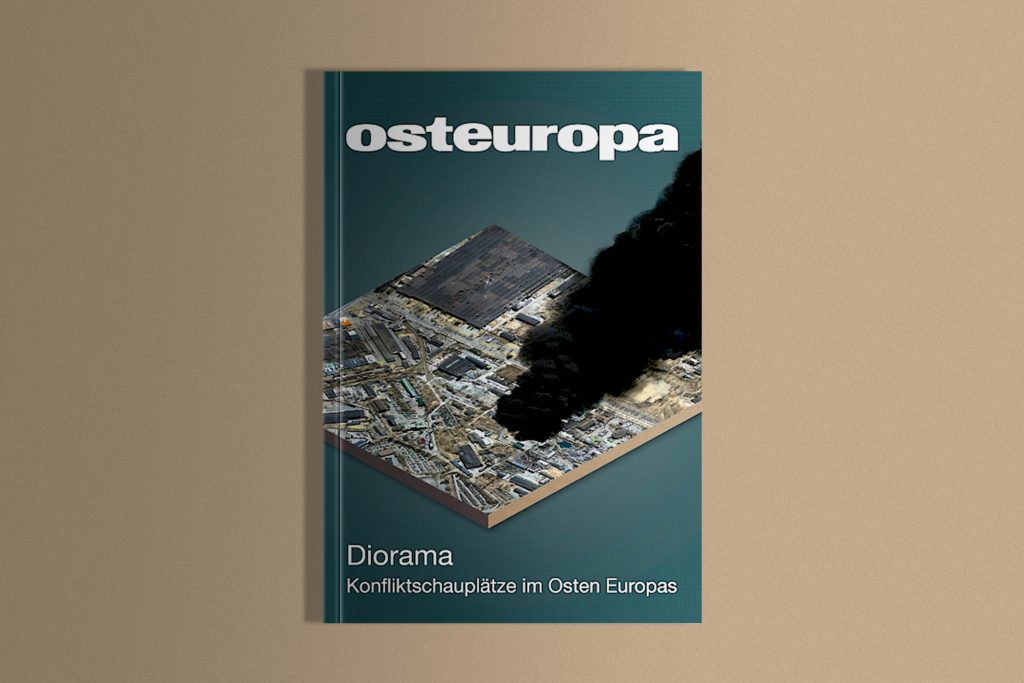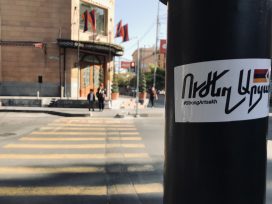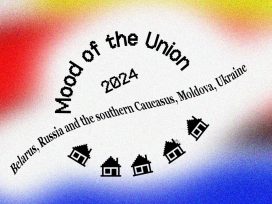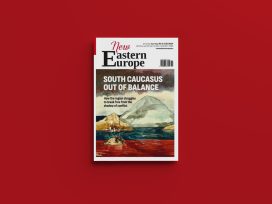Russia’s intention to burst the Kakhovka Dam was already clear months before 6 June. Water levels in the Kakhovka reservoir had been lowered, presumably to avoid an even greater catastrophe. Predicting the event, Ihor Pylypenko and Daria Malchykova – geographers at the University of Kherson – explain in Osteuropa the significance of the dam for the supply of water to Crimea and Ukraine’s southeast.
The North Crimea canal, built between 1961 and 1971, was the first of the two major canals leading out of the Kakhovka reservoir, which was created on the south-eastern stretch of the Dnieper in the early 1950s. Until being blocked by Ukraine in 2014, the 402 km North Crimea canal supplied Crimea with up to 85% of its running water. One motive for the Russian invasion of the southern part of Ukraine was to restore this supply. The destruction of the dam was thus utterly self-defeating.
The second of the two major canals was the Kakhovka Canal, construction on which began at the end of the 1960s and ended in 1980. Through its subsidiaries, the Kakhovka Canal was able to irrigate around 220k hectares of land in the Kherson and Zaporizhzhia regions. It also provided drinking water to the coastal areas on the Sea of Azov, above all the city of Berdiansk, which before the invasion had around 100k inhabitants, and to another 300k people in southern Zaporizhzhia.

The extension of the canal system in the 1960s and 1970s brought fundamental social changes. The water supply rapidly transformed Kherson into an agricultural centre, leading to a rapid population increase. The original intention was to increase grain production in the region, however farms increasingly switched to fruit and vegetables, above all melons and tomatoes. More lucrative, these types of crop are also far more labour intensive.
The food processing industry soon followed. Chumak, the largest tomato processing company in eastern Europe, was founded in the mid-1990s by two Swedes and until last year was based in Khakovka. For its ketchup production alone, Chumak needed around 60k tonnes of tomatoes per year (the company also produces mayonnaise, pasta, canned and marinated vegetables, and sunflower oil).
The Chumak plant was plundered after the Russian invasion and many of its machines taken to Russia. Since then, it has operated out of Kyiv. The same fate met Agrofusion, another big tomato processing company, as well as numerous smaller food companies in the region.
Built up over decades and providing livelihoods to between 280k and 420k people, this entire regional industry has been destroyed by Russia’s act of sabotage. The drinking water supply to over 400k people has been cut off and Crimea will suffer serious drought, as it did between 2014 and 2022. Scorched earth or flooded earth: the tactics are the same.
Nagorno-Karabakh
Despite the Moscow-brokered ceasefire between Armenia and Azerbaijan in Autumn 2020, the conflict over Nagorno-Karabakh festers. The presence of Russian ‘peacekeeping’ troops has so far failed to prevent Azerbaijan from restricting movement along the Lachin Corridor connecting Armenia to the region. Azerbaijan also continues to exert pressure on Armenia to cede territories beyond the boundaries established in the ceasefire agreement, above all the Zangezur Corridor in southern of Armenia that would connect Azerbaijan with its exclave Nakhichevan.
Osteuropa editor Volker Weichsel interviews Armenian political scientist Narek Sukiasyan on the implications of the conflict for the Armenian population in Nagorno-Karabakh, which is directly threatened with ethnic cleansing should Azerbaijan gain full control over the region.
Azerbaijani president Ilham Aliyev, says Sukiasyan, ‘considers the rights of the Armenians of Karabakh as a domestic issue, even though it is crystal clear that putting them under Azerbaijani jurisdiction would mean complete ethnic cleansing. In the territories taken by Azerbaijan as a result of the war, there are zero Armenians left. They either have been killed or forced to leave, creating more than 30,000 internal refugees.’
‘To this day, the textbooks of Azerbaijan’s elementary schools encourage hatred towards Armenians, and in every other speech Ilham Aliyev either threatens to “break Armenia’s backbone” or brags about “chasing them like dogs”. Unfortunately, there are high-ranking politicians in the West who choose to be deluded by talk about their integration. These same people have also chosen to keep silent about the extremely dire human rights situation in Azerbaijan in recent years, instead prioritizing the uninterrupted flow of hydrocarbons from the dictatorship.’
According to Sukiasyan, there is a simple reason for Azerbaijan’s prolongation of the conflict: ‘Ilham Aliyev severely lacks democratic legitimacy. He received the throne from his long-serving father two decades ago, he appointed his wife as the vice-president of the country, and has “won” all his elections according to the best practices of sultanism, cracking down on any remnants of opposition. The only legitimizing idea behind his rule was the promise “to return Karabakh”. Once this is considered completed, Aliyev’s dynasty has no national idea to offer the population.’
Since the 2018 revolution Armenia has been considered in the West as a democratic ‘bright spot’ in the region. But the conflict is beginning to have negative impacts on Armenian democracy, warns Sukiasyan: ‘The constant state of being under an existential threat forces the population into a collective anxiety, which in turn creates apathy towards all other issues. The pace of the post-revolutionary reforms has slowed down. Many even find themselves disappointed in democracy by connecting the revolution and the loss in the war in a causal chain.’
Vladimir Kara-Murza
A German translation of Vera Chelitsheva’s Novaya Gazeta Europe profile of the Russian opposition politician and human-rights activist Vladimir Kara-Murza, who in April 2023 was sentenced to 25 years in prison for speaking out against the war on Ukraine. In an exclusive interview for Eurozine conducted from prison via handwritten correspondence, Kara-Murza argues that regime-change in Russia will come sooner than people think.







